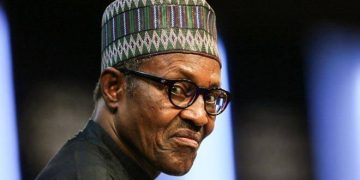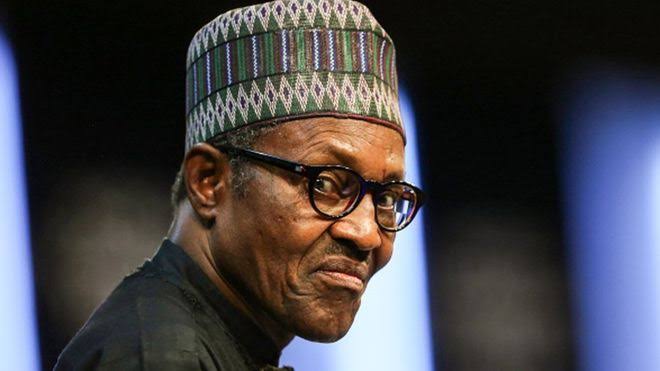President Muhammadu Buhari is billed to step down next week, after serving two terms as the leader of Africa’s most populous nation.
He will be leaving Nigerians feeling less secure, economically worse off, and burdened with increased debt compared to when he assumed office in 2015.
Upon defeating incumbent President Goodluck Jonathan in 2015, Buhari, a former military ruler, was expected to bring about the “positive change” he promised.
Backed by a powerful coalition and known for his no-nonsense approach, he promised to address the rampant Islamist insurgency in the northeast and combat widespread corruption.
Although progress has been made in tackling Boko Haram and other extremist groups, with assistance from improved military equipment from the US, violent groups have emerged in other parts of the country during Buhari’s two terms, eroding the gains made against Islamist militants.
The conflict between farmers and Fulani cattle herders, which had simmered for years, escalated under Buhari’s watch, resulting in deadly armed confrontations driven by ethnic tensions.
Buhari’s proposed grazing reserves for herders were met with resistance from southern state governors, who viewed it as a land-grabbing tactic, exacerbating the crisis.
Armed groups arising from this conflict have evolved into violent motorcycle-riding bandits, perpetrating kidnappings-for-ransom that have become widespread across the country.
Shockingly, between December 2020 and September 2021, a staggering number of school children, as reported by the UN’s children’s organization, Unicef, fell victim to abduction, reaching into the thousands.
This surpasses the infamous abduction of 270 girls from a school in Chibok, which garnered worldwide attention in 2014 and played a pivotal role in Mr Buhari’s victory over Mr Jonathan in the election.
In the oil-rich Niger Delta, where oil-militants and sea pirates once held sway, the overall insecurity under Mr Buhari’s administration has been relatively subdued.
However, this period of apparent calm has coincided with a surge in large-scale oil theft, with various groups in the region accused of pilfering crude from pipelines.
Consequently, Nigeria’s oil production plummeted to its lowest point in three decades in 2022.
Commentators were astounded by the alarming discovery last October of a kilometers-long pipeline employed for oil theft, a feat deemed “nearly impossible” without the assistance of authorities.
In a particular location, audacious thieves constructed their own 4km-long pipeline through heavily guarded creeks, leading directly to the Atlantic Ocean.
There, vessels and barges shamelessly loaded the stolen oil from a conspicuous seven-meter rig visible for miles on the open waters.
These brazen thefts, occurring directly under the purview of Mr Buhari, who also served as Nigeria’s petroleum minister, undermined his claims of fighting corruption and graft.
Buhari’s handling of separatist leader Nnamdi Kanu and his Indigenous People of Biafra (Ipob) group has also drawn criticism.
Kanu’s arrest and subsequent armed confrontation with the government led to numerous casualties.
Although a judge has ordered Kanu’s release due to procedural irregularities, he remains in custody.
Buhari’s handling of the Nigerian economy has faced scrutiny as well.
While the government attributed the significant decline in oil prices during its initial period, as well as the impact of the Covid pandemic and Russia’s conflict in Ukraine, to the nation’s economic challenges, some of its own policies have also played a role.
Measures like currency restrictions and the closure of land borders aimed at bolstering local production have inadvertently contributed to skyrocketing inflation, plunging millions into poverty and dismantling Nigeria’s once thriving middle-class.
His frequent medical trips to the UK, despite significant investments in the presidential clinic, raised questions about transparency and accountability.
Critics argue that such actions drained taxpayers’ money and enabled corruption, undermining his claim to be fighting graft.
Buhari’s attempts at redesigning the local currency resulted in chaos, with a scarcity of new banknotes causing hardship for millions who relied on cash for their basic needs.
The country’s youth also faced a lack of job opportunities, with one in three Nigerians unable to find work.
Furthermore, Buhari’s borrowing spree has significantly increased Nigeria’s public debt, reaching around $150 billion, with warnings from the World Bank about the country’s debt sustainability.
As Buhari prepares to depart, he has outrageously sought lawmakers’ approval for a $800m (£640m) loan from the World Bank.
However, his administration defends the growing debt, citing welfare programs as a justification for borrowing.
While some in the administration believe they have had a successful eight-year tenure, the reality is that Nigerians are now facing greater challenges in terms of security, economic well-being, and debt compared to when Buhari assumed office.



































